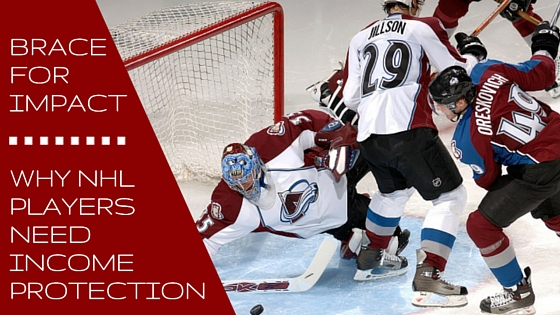Brace For Impact: Why NHL Players Need Income Protection

If September taught us anything about hockey, it’s that concussions are as serious a problem as ever. Just look at these recent headlines:

(via NJ.com)

(via Fox Sports)

(via CBS Sports)
When the NHL season kicks off this week, it’s sure to bring exciting games, hard hits and cringe-worthy injuries. The rough nature of hockey that makes it fun to watch is also the very reason players need to make sure they have individual income protection should they suffer a career-ending injury.
These headlines remind us that there is a long way to go in understanding and correctly preventing and addressing concussions. Professional athletes should arm themselves with the resources they have available, such as a strong individual disability insurance policy.
League-sponsored or private policies?
While a league-sponsored disability insurance policy is better than no protection at all, elite and professional athletes should consider a privately purchased individual disability insurance policy.
Since professional athletic organizations are corporations, the Employee Retirement Income Security Act governs their employee benefit plans. ERISA has been used to severely limit the rights and legal remedies of group policyholders, making it extremely difficult for many elite athletes to collect on rightfully deserved benefits.
What to look for
When reviewing and selecting a privately-purchased individual disability insurance policy, look for one that covers the player’s own occupation.
An own occupation policy provides protection should the player be unable to perform the important duties of his occupation. Should any sickness or injury occur, he is still guaranteed his monthly disability benefits even if he can work in another position, such as sportscaster or coach.
Most players are accustomed to certain standards of living, which could drastically change in a flash due to a disabling illness or injury. Without an own occupation protection clause, a player would forgo monthly benefits because he can still work, potentially resulting in a serious cut in income and lifestyle.
Many athletes don’t realize they can negotiate for better language and a more comprehensive individual disability policy or career-ending coverage. These policies aren’t one-size-fits-all, and it helps to have an expert in your corner who understands the disability insurance landscape. Athletes should contact a nationally recognized disability attorney with proven elite athlete experience for free policy analysis when selecting income protection or career-ending disability coverage.


